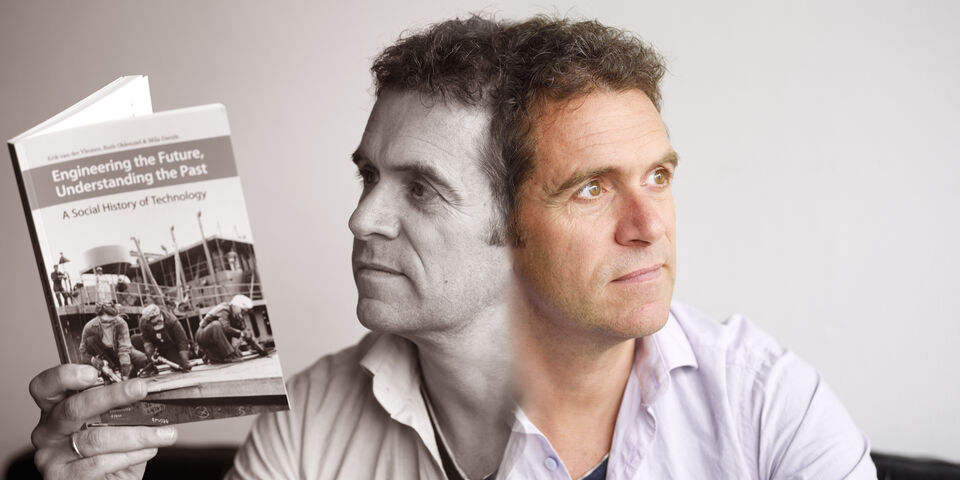“Technical developments are sometimes at odds with political dynamics”
An engineer looking for solutions to the major challenges of this day and age will do wise not to turn his back on the past. Not seldom do solutions of one era prove to develop into the problems of the next one, as Erik van der Vleuten knows. And, conversely, an engineer’s view provides a historian with an entirely different look at history. Tomorrow, April 21, the professor of the History of Technology will present his inaugural lecture.
After Harry Lintsen and Johan Schot, Erik van der Vleuten is the third professor to hold the TU/e Chair of the History of Technology. He thinks that our university has over the past few decades developed to become a global knowledge center for the history of technology. “We not only have our own Historie der Techniek foundation here, but since last year the secretariat of the international Society for the History of Technology has had its registered office here as well.”
After the formation of the Historie der Techniek foundation, in 1988, the focus was first on writing a history of the technology in the Netherlands, says Van der Vleuten. “Subsequently in the past fifteen years we focused on the European integration. We rewrote that history, as it were, from the perspective of technology, with a couple of hundred scientists from all over Europe. This shows that that integration extends far deeper than one can deduce from the political history. The EU claims all kinds of successes, often falsely so. There are many policy domains, such as transport and energy, where it was actually experts, engineers in particular, who accomplished the technical integration. Even in 1910, for example, there was a contiguous railway network from Western Europe up to the Pacific Ocean, right across Siberia.”
At the outset of the 20th century that transport network was seen as a guarantee of peace and prosperity. It provided access to new markets and thanks to reciprocal trade, politicians would think twice before starting a war, was the general assumption. A dire miscalculation: within a matter of years the First World War broke out. “The railway proved to be a key technology in warfare, because it made possible the transport of endless quantities of troops, provisions and weaponry to the trenches.” It just goes to show that technology which has been developed with the best of intentions may have a negative impact in the end.
“You see other things when you do not only look at shouting politicians”
During the Cold War, Van der Vleuten says, the gas pipeline was built which has until today been used to transport Russian natural gas to Western Europe. “This makes it clear that technical developments are sometimes at odds with political dynamics. Although the NATO did not like this, the Soviets proved to be very reliable suppliers.” It demonstrates that the history of technology tells its own story of the past. “You see other things when you do not only look at shouting politicians.”
The question now is how we can learn from that past to solve present-day issues, such as the climate crisis, the transition to renewable energy, curbing the healthcare costs, problems concerning Internet security and dealing with flows of refugees. They are ‘grand challenges’ which have been mentioned explicitly as such by the worldwide engineers’ associations.
The technology historian is convinced that thinking in systems – typical of engineers - is indispensable for tackling the above-mentioned comprehensive issues. “Engineers just have to continue their work on solutions; if necessary independently from politics. On the one hand, engineering science must not lose touch with societal issues; then again, it should certainly not blindly follow passing fads. We need to strike the right balance there.”


Discussion